Oklahoma 'Performers' contribute to trailblazing Cherokee-language album
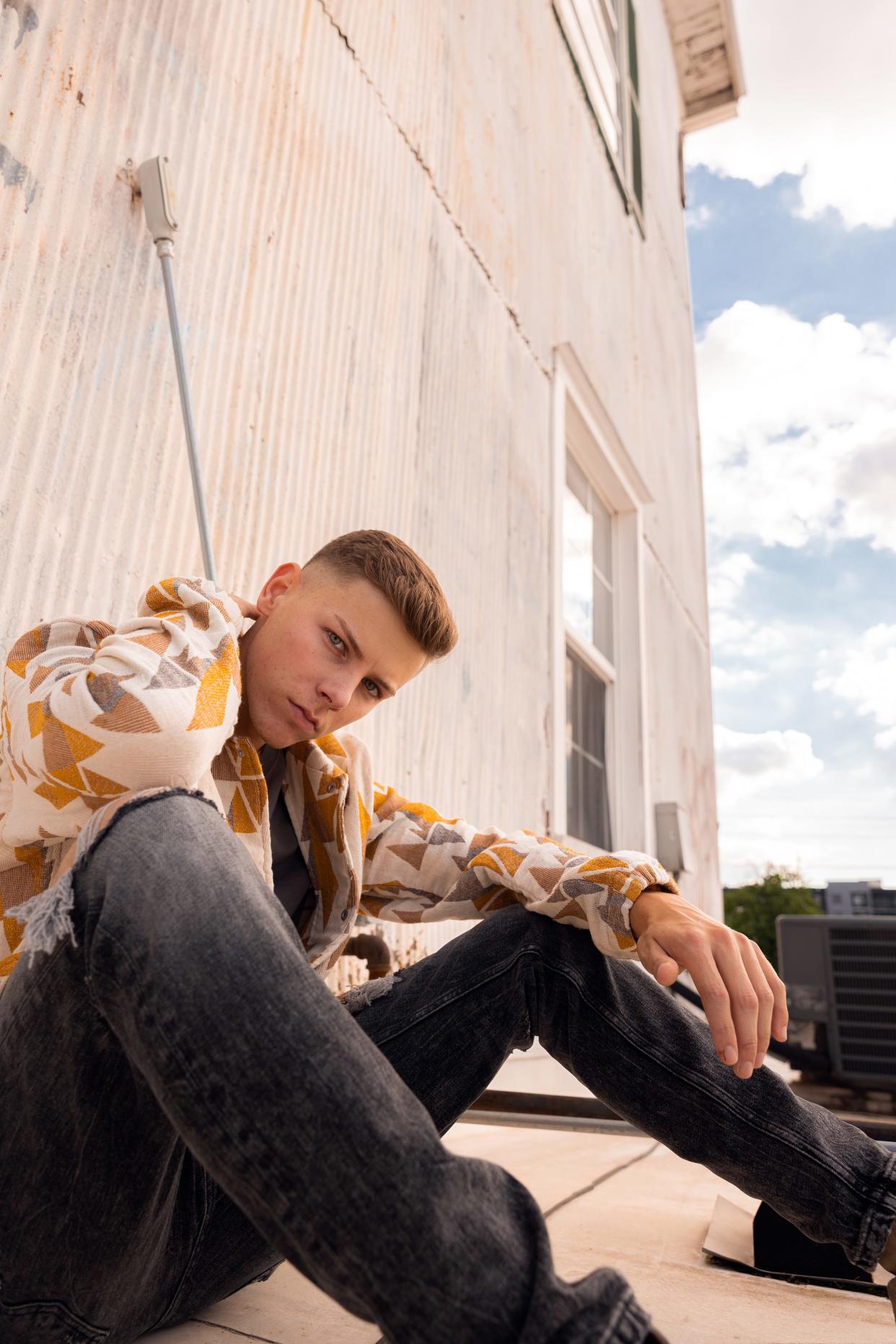
Austin Markham's high, clear voice still soars over a subtle saxophone, smooth jams and soft finger snaps on the new version of his original song "Gon' Be Alright."
But the pop-soul singer's vocals hit much differently when he's crooning in Cherokee.
"The English lyrics are out there. ... But we actually changed the song several times, just making sure that this translation was as accurate as possible. That was our main focus was the purity of the language," said Markham, a Nashville, Tennessee-based singer-songwriter who hails from Vinita.
"To be able to do this project was super humbling, and getting to be a part of preserving the Cherokee language was an immense honor."
Markham is one of 12 Cherokee musicians from Oklahoma who contributed to the trailblazing album ???????," or "Anvdvnelisgi," a contemporary compilation of original music performed entirely in their tribe's language.
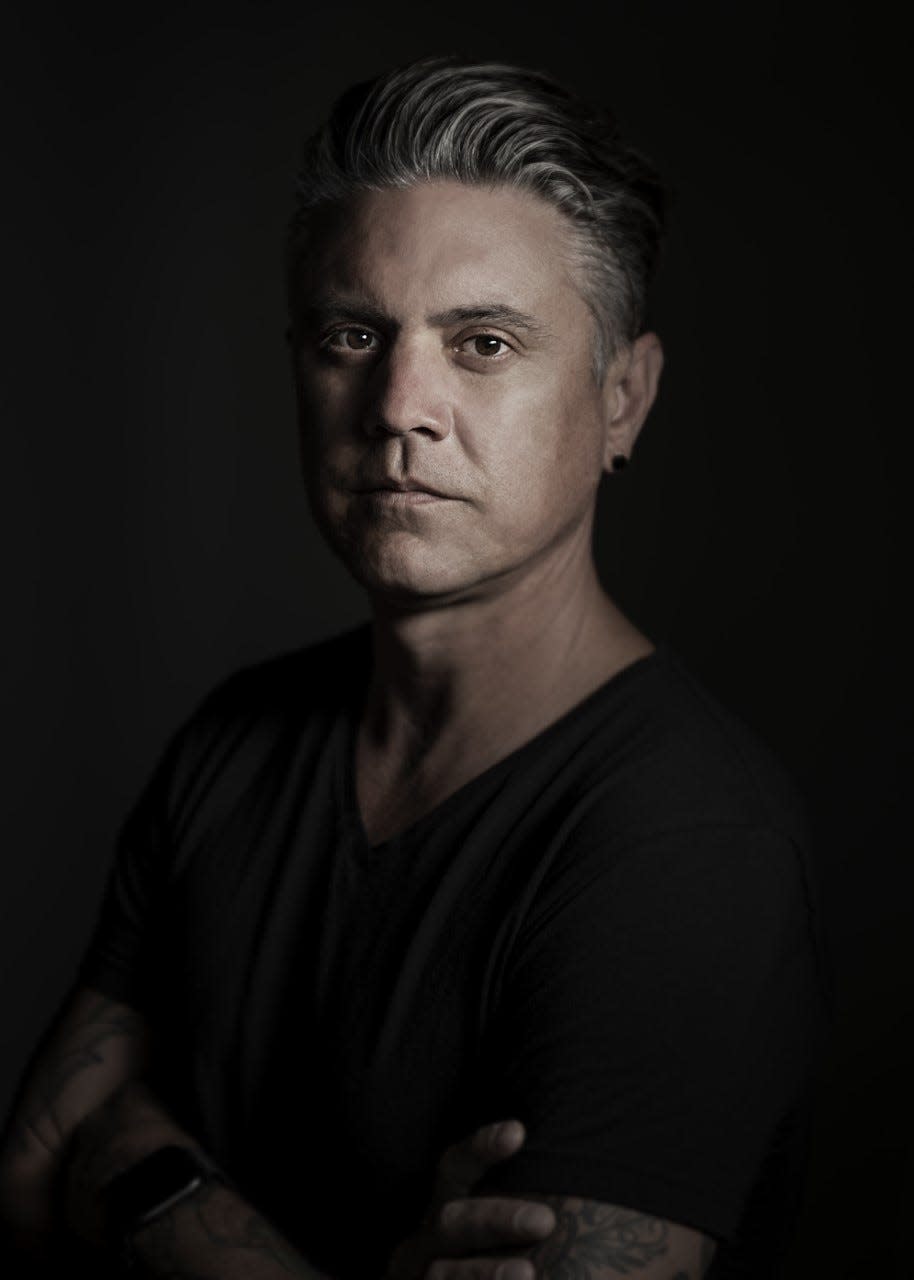
Pronounced "Ah Nuh Duh Nay Lees Gi," "Anvdvnelisgi" translates to "Performers" in English. Released last month on Tulsa-based nonprofit label Horton Records, the album features performers working in a wide array of genres, from metal and hip-hop to folk and reggae.
"Really, it's about inspiration (and) showing people what's possible, because when I first started with this idea, I think there was a lot of, 'Well, I don't know.' You can't imagine what you haven't heard before or seen. … That's kind of the purpose of the album,'" said Jeremy Charles, the Cherokee Nation citizen who produced the project.
"Very, very few original popular genre songs have been recorded in the Cherokee language, so it's really new. I'm friends with lots of fluent speakers ... and to watch their reactions to it is very inspiring to me because they see the potential."
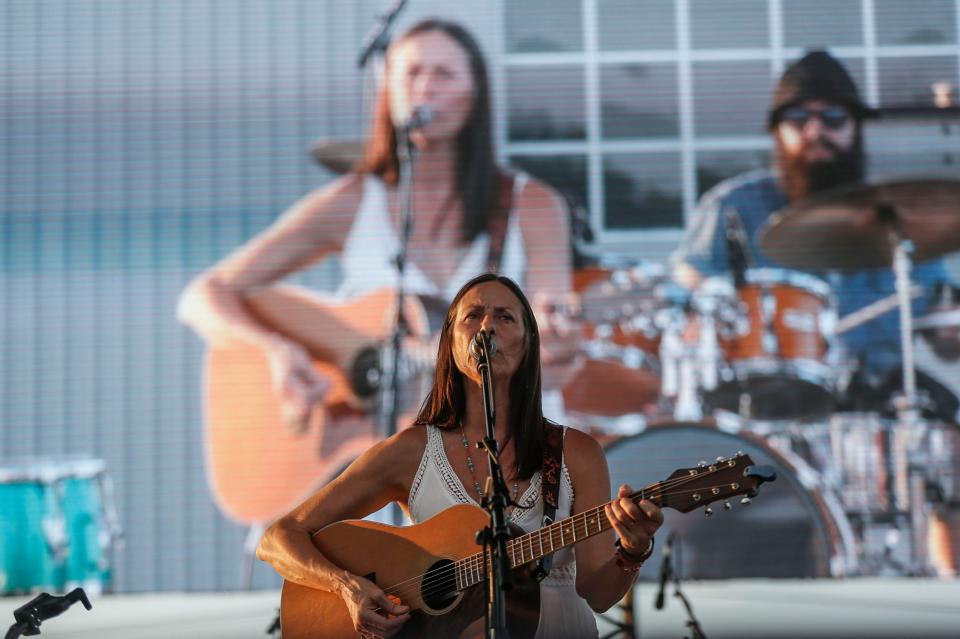
What inspired the new Cherokee-language album?
Based in Tulsa, Charles is best known as a filmmaker: He is the award-winning co-creator, director and producer for the 13-time regional Emmy-winning docuseries "Osiyo, Voices of the Cherokee People," creator of the Cherokee-language animated series "Inage’i (In The Woods)" and the 2021 winner of the inaugural Best Indigenous Short prize at Oklahoma City's deadCenter Film Festival for his Cherokee-language thriller "Totsu (Redbird)."
"My career as a filmmaker is directly tied to music: I made my name shooting bands, concerts, promo materials, magazine editorials, album art," Charles told The Oklahoman.
"It's a powerful medium to me. Other than film, it's, to me, the most powerful way to inspire people. You can really change things with music and film. You can change the world."
If the Cherokee Nation is going to preserve its language, that change can't come soon enough.
"An Indigenous language is lost every two weeks around the world. With less than 2,000 living fluent Cherokee speakers, we are looking for ways to keep our language current and accessible,” said Howard Paden, executive director of the Cherokee Nation Language Department, in an email.
Charles was inspired to create a Cherokee album of contemporary music after Paden showed him a video of a Māori singer.
"The Māori of New Zealand are the reference point for Indigenous language preservation, because they have an entire film scene in the language. They have TV stations in the language with a variety of television shows and movies. They have an entire music scene in the language: There's dozens and dozens of successful bands performing in the Māori language," Charles said.
"I recognize, as someone who makes media, that we just need a lot more media available to Cherokee-language learners and speakers — and we need a music scene."
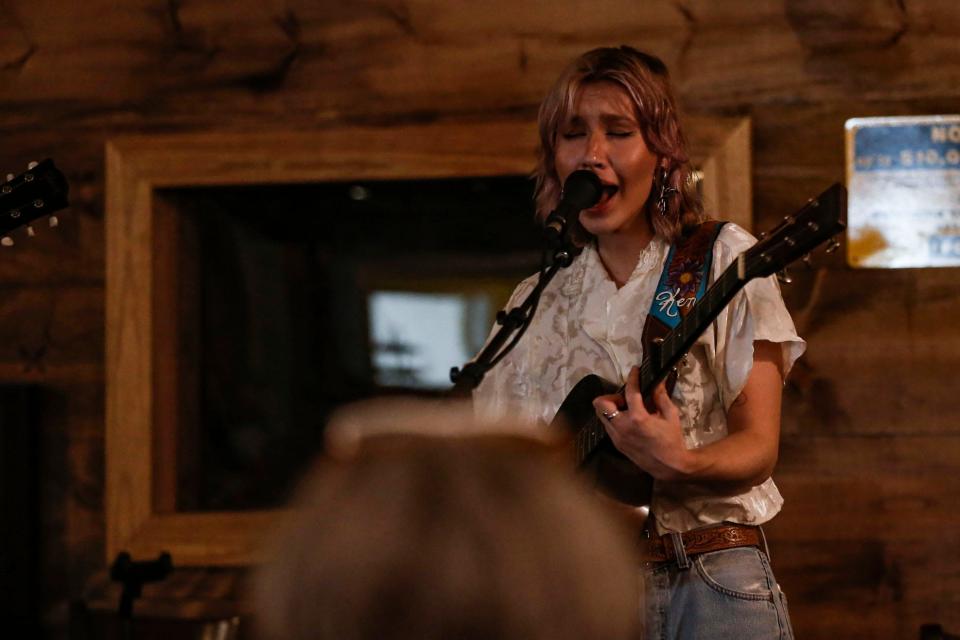
Which Oklahoma performers are featured on the album?
Charles had no problem brainstorming a roster of Cherokee musicians for the project. Ranging in age from 14 to 50, the performers on "Anvdvnelisgi" include Red Dirt singer-songwriter Monica Taylor, heavy metal singer Colby Luper, rock duo Desi & Cody, reggae musician Travis Fite, Americana artist Kalyn Fay, metal band Medicine Horse, psychedelic singer-songwriter Aaron Hale and alternative-folk singer-songwriter Ken Pomeroy.
The youngest participant, Charles' daughter Lillian Charles, a pop singer-songwriter who performs as IIA, recorded the title track.
"We wanted to represent as many genres as possible," he said. "It's just to show, 'Hey, you can make country, you can make metal. You can imagine it now that you've heard it’ … and jump-start artists into identifying that they can do this. We have a process; we have standards. There's an audience — there's a very eager audience."
As he suspected, recruiting talented musicians for the project was easy. The challenge was that 10 of the 12 performers weren't Cherokee speakers or even familiar with the language.
"We can't just put out Cherokee songs without them being fully vetted, because what's the point in putting out a language album if the language itself is not as close to absolutely authentic and perfect as it can be?" he said.
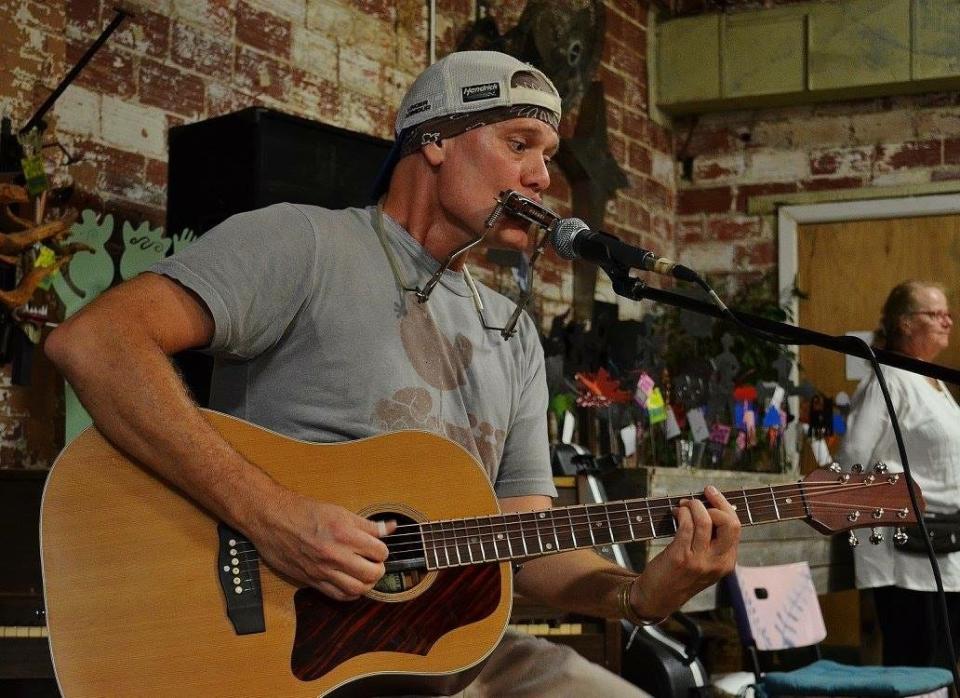
How did the musicians record their songs in Cherokee?
Charles paired each musician with one or more Cherokee-speaking translators so that their original songs could be translated from English to Cherokee.
"English and Cherokee are not really compatible. English — and English music — uses a lot of euphemisms and metaphors that have no translatable quality in Cherokee. Cherokee is very descriptive," Charles said. "We'd first do a baseline translation, collaborate to fine tune so it was as close to the intended meaning as possible, and then keep on fine tuning to make it more singable, economical and rhythmic."
The next step was working diligently on pronunciation.
"Getting every syllable right, it was a lot of rehearsals. We'd do scratch tracks, get feedback … and the translators also sat in during the final vocal recordings," Charles said. "In the end, we passed all the songs through a committee of the Cherokee Language Department."
To translate his pop song "Gon' Be Alright," from his 2021 debut EP "Me.," into the Cherokee-language version "Osdawidigalisda," Markham said he spent about four months collaborating with Cherokee speakers Ellen Culp and Danielle Culp.
"I really didn't know what to expect ... but Ellen and Danielle were so nice and thoughtful," said Markham, adding that he was thrilled to perform the Cherokee version at an "Anvdvnelisgi" release show at Tulsa's iconic Cain's Ballroom.
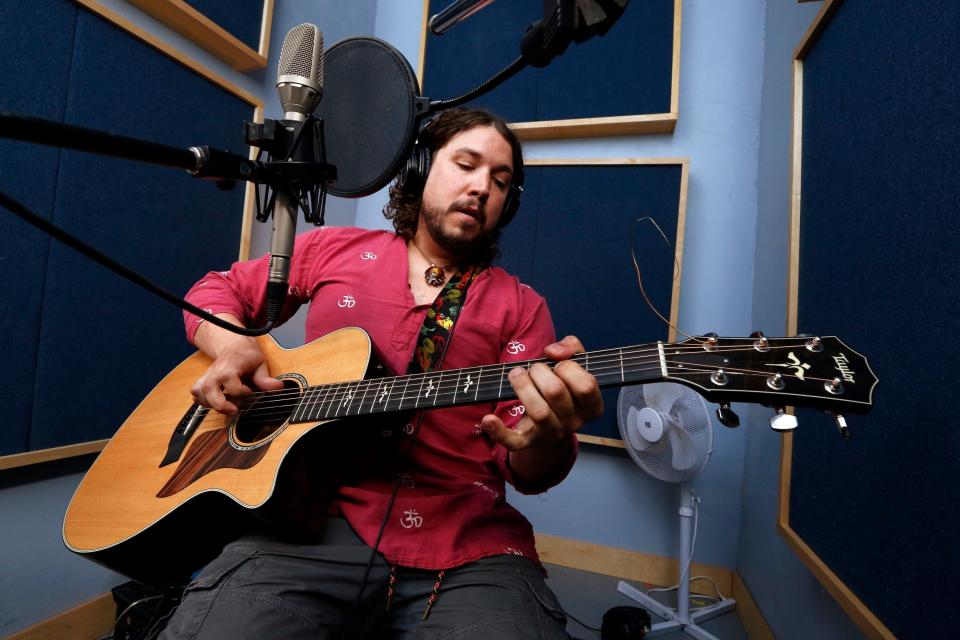
How does the album tie into the Cherokee Nation's language preservation efforts?
Two of the project's younger performers — hip-hop artist Zebadiah Nofire and country singer-songwriter Agalisiga “Chuj” Mackey — were able to write their "Anvdvnelisgi" songs in Cherokee.
A graduate of the Cherokee Language Master Apprentice Program and employee at the Cherokee Immersion School, Nofire worked with producer Kawnar to craft the beats for his sizzling song "Digaduhvsga (The Baker)."
Calling himself a "pretty advanced second-language learner," Mackey said his father, Cherokee speaker Ryan Mackey, helped him pen his "Gatlohiha (Cherokee Yodel)," inspired by the stylings of country music legend Jimmie Rodgers.
"I never wrote any songs, period, up until that point. But I guess I was lucky because I grew up writing in the language," Mackey said.
Along with performing at an "Anvdvnelisgi" showcase during the Cherokee National Holiday over Labor Day weekend, Mackey and his father were among the more than 2,000 people who attended the Nov. 15 grand opening of the tribe's new $20 million Durbin Feeling Language Center in Tahlequah.
“The Cherokee language has always been the heart and soul of the Cherokee people. It contains intricate ways of thinking and a traditional knowledge that can’t be found anywhere else,” Principal Chief Chuck Hoskin Jr. said in an email. “That is why we are so focused on and committed to our Cherokee language preservation."
Named in memory of the single largest contributor to the Cherokee language since Sequoyah, the center includes 17 classrooms, a library, archive room, gymnasium and playground — and everything in it is written in the Cherokee Syllabary.
"A lot of amazing things are gonna happen there for our people," Mackey said. "We need as many albums as we can get. ... We should have television shows and movies. Anything that we have in the modern-day world that is popular, we need to make that into Cherokee — and it's absolutely doable."
Although creating "Anvdvnelisgi" took more than a year, Charles said he hopes to work on a second volume in 2023 with more Cherokee musicians.
"What's really fun to see is that a lot of these bands — Kalyn Fay, Desi & Cody, Ken Pomeroy and Agalisiga Mackey, I know for sure — are working their songs into their regular sets," he said. "So, each show, they're exposing more people to the language. They're reinforcing their identity ... and advocating for the Cherokee people just by their actions — just by performing."
This article originally appeared on Oklahoman: Oklahoma 'Performers' work on trailblazing Cherokee-language album
